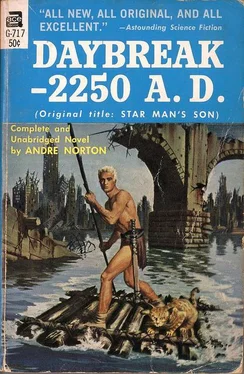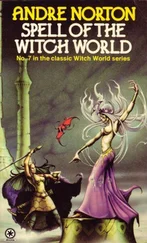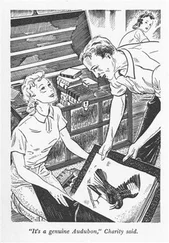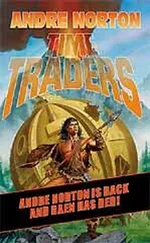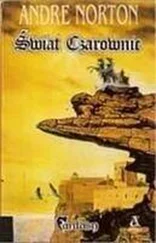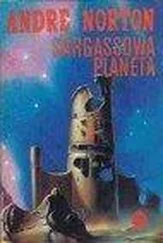Andre Norton - Daybreak—2250 A.D.
Здесь есть возможность читать онлайн «Andre Norton - Daybreak—2250 A.D.» весь текст электронной книги совершенно бесплатно (целиком полную версию без сокращений). В некоторых случаях можно слушать аудио, скачать через торрент в формате fb2 и присутствует краткое содержание. Год выпуска: 1952, Издательство: Ace Book, Жанр: sf_postapocalyptic, на английском языке. Описание произведения, (предисловие) а так же отзывы посетителей доступны на портале библиотеки ЛибКат.
- Название:Daybreak—2250 A.D.
- Автор:
- Издательство:Ace Book
- Жанр:
- Год:1952
- ISBN:нет данных
- Рейтинг книги:3 / 5. Голосов: 1
-
Избранное:Добавить в избранное
- Отзывы:
-
Ваша оценка:
- 60
- 1
- 2
- 3
- 4
- 5
Daybreak—2250 A.D.: краткое содержание, описание и аннотация
Предлагаем к чтению аннотацию, описание, краткое содержание или предисловие (зависит от того, что написал сам автор книги «Daybreak—2250 A.D.»). Если вы не нашли необходимую информацию о книге — напишите в комментариях, мы постараемся отыскать её.
Daybreak—2250 A.D. — читать онлайн бесплатно полную книгу (весь текст) целиком
Ниже представлен текст книги, разбитый по страницам. Система сохранения места последней прочитанной страницы, позволяет с удобством читать онлайн бесплатно книгу «Daybreak—2250 A.D.», без необходимости каждый раз заново искать на чём Вы остановились. Поставьте закладку, и сможете в любой момент перейти на страницу, на которой закончили чтение.
Интервал:
Закладка:
He was not like the other one at all, was the gist of most of their comments. Apparently they already knew of Arskane’s people and had little liking for them. But Fors, with his strange silver hair and lighter skin, was an unknown quantity which intrigued them.
The combined troops at last rode on, Fors thankful for the breathing spell he had been granted by the meeting. Within a half mile they came into their camp. Fors was amazed at the wide sweep of tent rows. This was no small family clan on the march, but a whole tribe or nation. He counted clan flags hung before sub-chieftains’ tent homes as he was led down the wide road which divided the sprawling settlement into two parts. He had marked down ten and there were countless others to be seen fluttering back from this main path.
At the sight of the dead the women of the Plains city set up the shrill ritual wailing, but they made no move toward the prisoners who had been released from the saddle ties to have their hands lashed behind them and to be thrust into a small tent within the shadow of the High Chieftain’s own circle.
Fors wriggled over on his side to face Arskane. Even in that dim light he could see that the southerner’s right eye was almost swollen shut and that a shallow cut on his neck was closed with a paste of dust and dried blood.
“Do you know this tribe?” Arskane asked after two croaking atempts to shape the words with a dust-clogged tongue.
“No. Both the clan flags and their horse markings are new to me. And some of the words they use I have never heard before. I think that they have come a long way. The tribes the Star Men know do not attack without warning—except when they go against the Beast Things —for always are all men’s swords bare to them! This is a nation on the march—I counted the banners of ten clans and I must have seen only a small portion of them.”
“I would like to know what use they have for us,” Arskane said dryly. “If they did not see profit in our capture we would now be awaiting the attention of the -death birds. But why do they want us?”
Fors let himself to recall all that he had ever heard concerning the ways of the Plainspeople. They held freedom very high, refusing to be tied to any stretch of land lest it come to hold them. They did not lie—ever—that was part of their code. But also did they deem themselves greater than other men, and they had a haughty and abiding pride. They were inclined to be suspicious of new things and were much bound by custom—in spite of their talk of freedom. Among them a man’s given word was held unbreakable, he must always hold to a promise no matter what might come. And anyone who offended against the tribe was solemnly pronounced dead in council. Thereafter no one could notice him and he could claim neither food nor lodging—for the tribe he had ceased to exist.
Star Men had lived in their tents. His own father had taken a chiefs daughter to wife. But that was only because the Star Men possessed something which the tribe reckoned to be worth having—a knowledge of wide lands.
A wild burst of sound broke his thoughts, a sound which grew louder, the full-throated chanting of fighting men on the march.
“With sword and flame before us,
And the lances of clans at our backs,
We ride through plains and forests
Where sweep the tides of war!
Eat, Death Birds, eat!
From a feast we have spread for your tearing—”
A flute carried the refrain while a small drum beat out the savage “eat, eat” It was a wild rhythm which made the blood race through the listener’s veins. Fors felt the power of it and it was a heady wine. His own people were a silent lot. The mountains must have drawn out of them the desire for music, singing was left to the women who sometimes hummed as they worked. He knew only the council hymn which had a certain darksome power. The men of the Eyrie never went singing into battle.
“These fighting men sing!” Arskane’s whisper echoed his own thoughts. “Do they welcome in such a manner their high chief?”
But if it were the chief who was being so welcomed he had no present interest in captives. Fors and Arskane remained imprisoned as the dreary hours passed. When it was fully dark fires were lighted at regular intervals down the main way and shortly after two men came in, to release them from the “ropes and stand alert while they rubbed stiff hands. There were bowls of stew planked down before them. The stuff was well cooked and they were famished—they gave the food their full attention. But when he had licked the last drop from his lips Fors bent his tongue in the Plains language he had learned from his father.
“Ho—good riding to you, Plainsborn. Now, windrider, by the custom of the shelter fire and the water bowl, we would have speech with the high chief of this tribe—”
The guard’s eyes widened. It was plain that the last thing he expected was to have the formal greeting of ceremony from this dirty and ragged prisoner. Recovering, he laughed and his companion joined jerringly.
“Soon enough will you be brought before the High One, forest filth. And when you are that meeting will give you no pleasure!”
Again their hands were tied and they were left alone. Fors waited until he judged that their sentry was fully engaged in exchanging chaff with the two visitors. He wriggled close to Arskane.
“When they fed us they made a mistake. All Plains-people have laws of hospitality. Should a stranger eat meat which has been cooked at their fires and drink water from their store, then they must hold him inviolate for a day, a night, and another day. They gave us stew to eat and in it was cooked meat and water. Keep silent, when they lead us out and I shall claim protection under their own laws—”
Arskane’s answering whisper was as faint. “They must believe us to be ignorant of their customs then—”
“Either that, or someone within this camp has given us a chance and waits now to see if we have wit enough to seize it. If that guard repeats my greeting then perhaps such an unknown will know that we are ready. Plains-people visit much from tribe to tribe. There may be one or more here now who knows the Eyrie and would so give me a fighting chance to save us.”
Maybe it was that Fors’ greeting had been passed on. At any rate, not many minutes elapsed before the men came back into the tent and the captives were pulled to their feet, to be herded between lines of armed men into the tall hide-walled pavilion which was the center of the city. Hundreds of deer and wild cattle had died to furnish the skins for that council room. And within it, packed so tightly that a sword could not lie comfortably between thigh and thigh, were the sub-chieftains, chiefs, warriors and wise men of the whole tribe.
Fors and Arskane were pushed down the open aisle which ran from the doorway to the center. There the ceremonial fire burned, sending out aromatic smoke as it was fed with bundles of dried herbs and lengths of cedar wood.
By the fire three men stood. The one, a long white cloak draped over his fighting garb, was the man of medicine, he who tended the bodies of the tribe. His companion who wore black was the Keeper of Records —the rememberer of past customs and law. Between them was the High Chief.
As the captives came forward Vocar arose out of the mass of his fellows and saluted the Chief with both hands to his forehead.
“Captain of Hosts, Leader of the Tribe of the Wind, Feeder of the Death Birds, these two be those we took in fair fight when by your orders we scouted to the east. Now we of the clan of the Raging Bull do give them into your hands that you may do with them as you wish. I, Vocar, have spoken.”
The High Chief acknowledged that with a brief nod. He was measuring the captives with a keen eye which missed nothing. Fors stared as boldly back.
Читать дальшеИнтервал:
Закладка:
Похожие книги на «Daybreak—2250 A.D.»
Представляем Вашему вниманию похожие книги на «Daybreak—2250 A.D.» списком для выбора. Мы отобрали схожую по названию и смыслу литературу в надежде предоставить читателям больше вариантов отыскать новые, интересные, ещё непрочитанные произведения.
Обсуждение, отзывы о книге «Daybreak—2250 A.D.» и просто собственные мнения читателей. Оставьте ваши комментарии, напишите, что Вы думаете о произведении, его смысле или главных героях. Укажите что конкретно понравилось, а что нет, и почему Вы так считаете.
